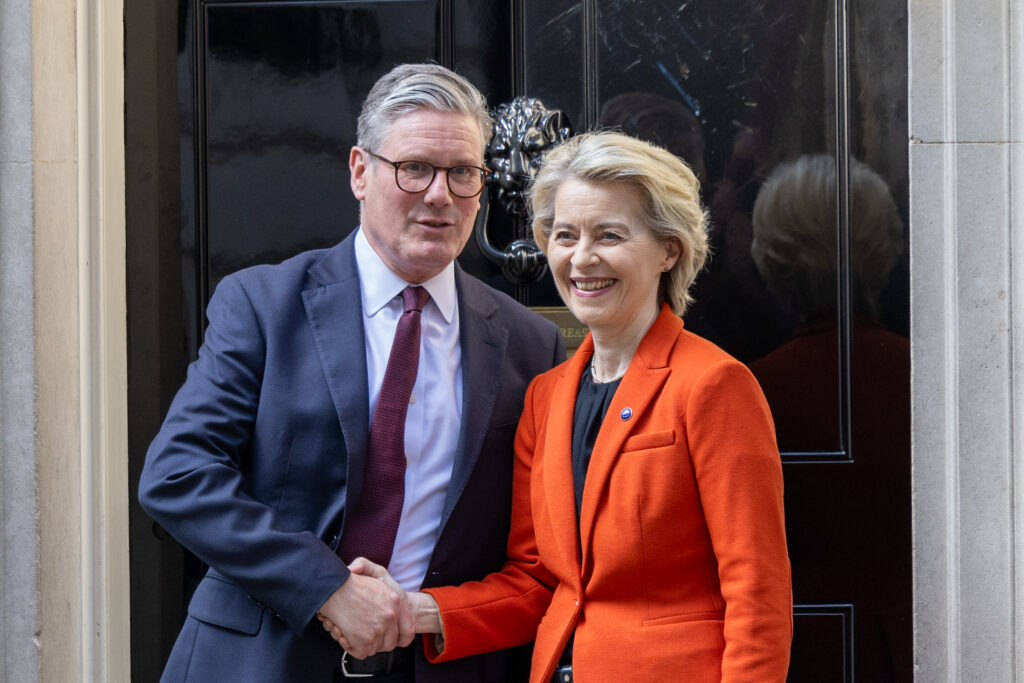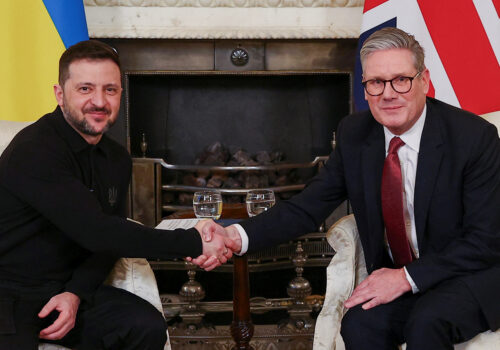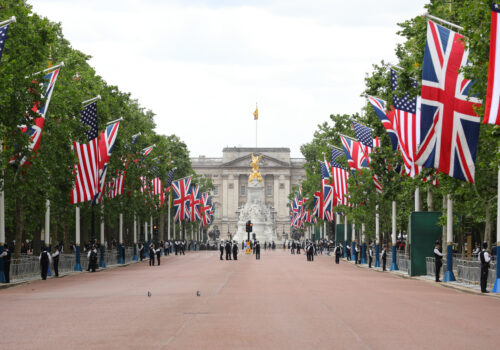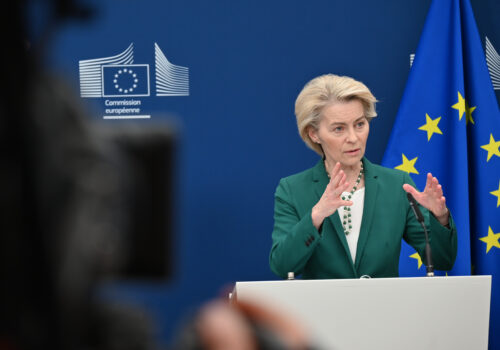Almost a decade after the Brexit referendum, leaders from the European Union (EU) and United Kingdom will meet in London on Monday. The meeting will be the first of what is to become an annual bilateral summit focused on building a stronger partnership to meet the growing economic and security threats that both Britain and the bloc face.
The EU and Britain need each other. Their shared challenges, including sluggish economic growth, the protracted war in Ukraine, and a US administration erecting tariffs on European goods and seeking to disengage from the continent’s defense, have made this abundantly clear.
Faced with these common challenges, EU and UK leaders are looking to sign three agreements at the summit. The first is a broad statement of shared values and common principles—a “geopolitical preamble” to shape a new strategic partnership. This statement is expected to reaffirm a commitment to free and open trade, Ukrainian sovereignty, and multilateral action to address global issues such as climate change.
For all the political difficulties, this is a time for both the EU and the United Kingdom to be bold.
The second, and most urgent, prospective agreement is a security and defense pact, which would open the way to the United Kingdom’s participation in EU-backed military spending. This agreement would allow Britain to take part in joint procurement for military capabilities alongside the bloc’s member states and to enable EU countries to purchase British-made military equipment as part of the new €150 billion European instrument to ramp up defense spending.
As one of Europe’s leading miliary powers, Britain is essential to achieving the continent’s aim of taking the primary role of defending itself in the wake of the Trump administration’s stated desire to reduce the United States’ commitment to defending Europe. In February, UK Prime Minister Keir Starmer pledged that Britain would increase its defense spending to 2.5 percent of its gross domestic product by 2027 and to 3 percent during the next parliament.
European fears about Russian aggression and US withdrawal from the continent have increased the pressure for decisive action on defense and security, and the EU-UK pact would represent a welcome step toward developing the continent’s defense industrial base and enhancing effective military cooperation.
The third item on the summit’s agenda is to agree to a “common understanding” on a range of issues concerning the trade and economic relationship between Britain and the EU. Current UK-EU trade arrangements are governed by the Trade and Cooperation Agreement (TCA) signed by the two sides in late 2020.
For all the fanfare associated with the economic deal the United Kingdom signed with the United States on May 8, the EU remains Britain’s single largest trading partner by far. Boosting economic ties weakened by Brexit could bring desperately needed dividends for both sides, even if it doesn’t produce the growth that would come from Britain rejoining the European single market, a policy Starmer promised not to pursue on the campaign trail.
The TCA is subject to a joint review next year, and both the United Kingdom and EU have bilateral issues they want to amend. The United Kingdom is keen to negotiate an agreement to reduce border checks on agricultural products and secure a mutual recognition agreement for professional qualifications to help open up markets for UK service exporters.
On the EU side, there are calls from France and others to support EU fishing rights in UK waters and a European Commission proposal to create a youth mobility scheme, which would allow young people from across Europe to work and travel freely between the United Kingdom and the EU.
Some of these issues will require political risks and trade-offs from both sides. Starmer’s popularity has slumped since he was elected last summer, and Brexiteers in the United Kingdom will be ready to accuse him of compromising on the outcome of Britian’s referendum to leave the European Union.
This domestic pressure has become more intense after local elections in England earlier this month that represented a heavy defeat for the governing Labour Party and a significant victory for the populist right-wing party, Reform UK, led by the arch Brexit champion Nigel Farage.
There will be pressure on European governments, too, not to compromise the principles of the EU single market for a deal on defense and security. And there remain concerns in European capitals about Britain’s long-term commitment to closer ties with a club it chose to leave nine years ago.
Yet, for all the political difficulties, this is a time for both the EU and the United Kingdom to be bold. Squabbles about fishing or veterinary checks cannot be allowed to undermine the vital steps that must be taken to confront the economic and security threats facing Britain and the EU today.
Europe has always been stronger when the United Kingdom and its continental neighbors are united. Next week’s summit can mark a modest but important step forward for UK-EU relations and demonstrate that the friction and pain of the last decade can be replaced by a new partnership with mutual benefits.
Ed Owen is a nonresident fellow of the Atlantic Council’s Europe Center and a former UK government adviser.
Further reading
Tue, Mar 18, 2025
Britain takes the lead as Europe seeks to boost support for Ukraine
UkraineAlert By
With the future of US support for Ukraine in doubt, Britain is leading European efforts to bolster the Ukrainian war effort and deny Putin an historic victory that would place the whole of Europe in peril, writes Alina Hrytsenko.
Mon, Jan 27, 2025
The case for a US-UK trade and investment agreement
New Atlanticist By L. Daniel Mullaney
As US President Donald Trump begins his second term, the United Kingdom is the right partner for the United States, and now is the right time for a deal.
Tue, Apr 8, 2025
The EU could respond to Trump’s tariffs with a new ‘anti-coercion instrument.’ Here’s what to know.
New Atlanticist By
Confronted with the latest round of US tariffs, the European Union is considering a new but untested tool in its economic-security toolbox.
Image: British Prime Minister Keir Starmer greets the President of the European Commission, Ursula von der Leyen at Downing Street.




